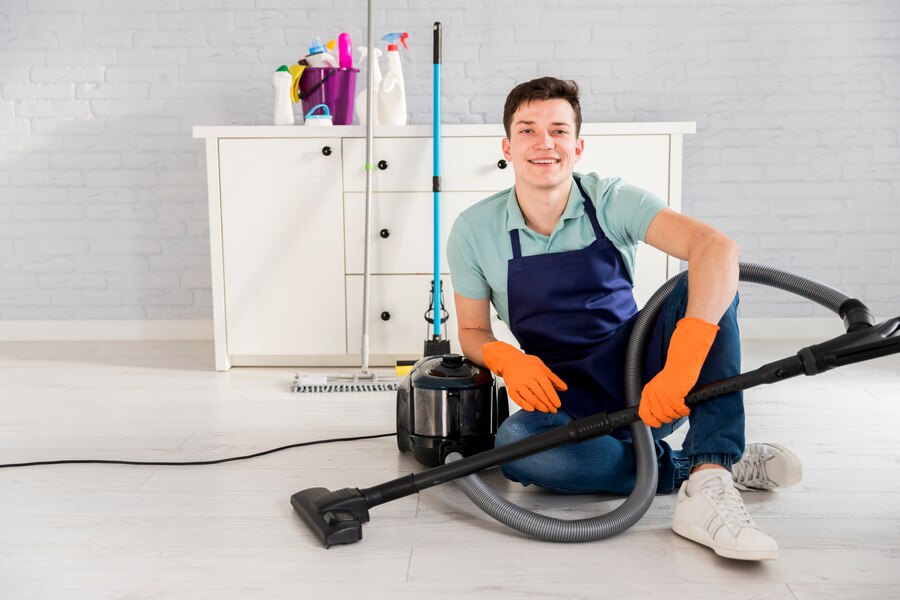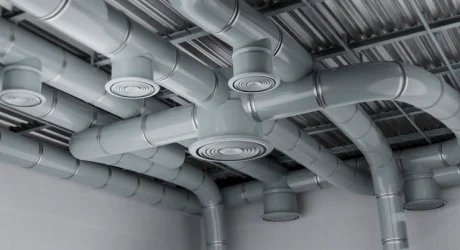You probably already know that vacuum cleaners are an important part of almost every home. They are very important for keeping our living areas clean and healthy. But here’s something interesting: picking the right vacuum hose can make a big difference in how well and quickly you clean.
If you are experiencing an allergy to dust, a vacuum helps to get rid of dust mites from your mattress effectively, but you need to do it often. If you want to get better at cleaning, read this piece. We’ll talk about vacuum hoses and help you choose the right one for your needs. Allow us to begin!
Consider The Size

When it comes to vacuum proper hose selection, size, and material matter. The diameter of the hose plays a crucial role in determining the suction power and maneuverability of your vacuum cleaner. Here are some factors to consider when choosing the right size:
Flooring Type
If you have thick carpets or rugs, a larger diameter hose (around 1.5 inches) is recommended as it allows for better airflow and debris pickup. For hard floors, a smaller diameter hose (around 1 inch) can provide adequate suction power without causing damage.
Read Also: The Best Home Improvement Projects to Increase the Value of Your Home
Vacuum Cleaner Power

High-powered vacuum cleaners may require larger hoses to handle the increased airflow and maintain optimal suction. Check the specifications of your vacuum cleaner to determine the recommended hose size. Don’t forget to check some vacuum hoses rated for higher pressures.
Cleaning Needs
Consider the size of the areas you need to clean regularly. If you have a large house, a longer hose (around 10-12 feet) can help you reach remote corners without moving the vacuum cleaner constantly.
Evaluate The Material
Longevity, flexibility, and cleaning ease depend on vacuum tube material compatibility. Popular vacuum system materials include:
Cheap, light, and easy-to-store plastic tubes are used in household vacuum cleaners. Though flexible, they can develop kinks and splits.
Rubber tubes endure and bend better than plastic. Heavy use makes them stronger and less kinky. Rubber tubes are heavier and costlier.
Rubber and metal wire strengthen wire-reinforced tubes. Weighty cleaning jobs suit these hoses because they don’t break or kink. They may cost more than alternatives.
Consider Additional Features

You should think about more than just the size and material of the vacuum line you choose. If you have to deal with fine dust or pet hair, anti-static properties can help keep the suction power at its best and keep the filter from getting stuck.
When the connections have swivels, the hose is easier to move around walls and furniture. To make sure it works with your vacuum cleaner type, read the directions that came with it or talk to a professional.
Vacuum lines can handle different amounts of pressure. High-pressure hoses are best for heavy-duty tasks, while low-pressure hoses are better for light cleaning.
A Guide On Choosing The Right Size And Material For Your Vacuum Hose
Picking the correct vacuum hose is crucial for speedy and effective completion of the task. An area that is clean and healthy for you and your family to live in is important. Consider things like size, material, and extras.
Whatever kind of floors you have, how often you need to clean them, and how strong your vacuum cleaner is should help you choose the right size. Rubber, plastic, and wire-reinforced hoses are all long-lasting and useful in many scenarios. Take into account extras like anti-static properties and swivel links.
For more cleaning blogs, don’t forget to browse our site to get updated on current trends!
Read Also:




























